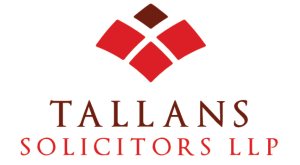The Injuries Board was set up in 2004 and is the Government body which makes personal injury awards. It has two main objectives:
- to reduce the costs for people making claims (claimants)
- to shorten the time frame from making a claim & getting an award.
The board was set up so that a claimant, a person who has suffered injury due to someone else’s fault, could take a claim themselves without using a solicitor.
Before you go-it-alone with the Injuries Board and fill in your claim application form, take a read of these 5 reasons and see for yourself how having a solicitor on your side is worth it. (Read on to get ALL the details).

Before you go-it-alone with the Injuries Board and fill in your claim application form, take a read of these 5 reasons and see for yourself how having a solicitor on your side is worth it.
1. Correct Identification of Respondents
You can only take an action for damages against the person, persons, company or companies (respondent) identified by their correct name on the form. Often times, there could be more than one respondent and it’s important to add them on the list before you submit the form.
Let me share a story. A client was injured at work and wanted to make a claim against the employer. She thought as it happened at work, that naturally, it was her employer’s responsibility. Through listening to her story and asking questions, we identified another respondent – the company who serviced the machine through which she got injured.
Your solicitor will know exactly who to put on the form. If there is an incorrect submission at the outset, the correction will not stop the clock against the respondent and ultimately, you could be statute barred to claim because of time.
2. The Right Way to Get Started
What might appear to be a seemingly simple accident can turn out to be a complex claim. It’s important to identify that from the outset. All applications to the Injuries Board must be accompanied by a medical report ‘prepared by a medical practitioner.’ It is vital that this report is completed by the right type of medical professional.
Your claim is assessed on documentation alone. You do not get an opportunity to talk about your injury and the effect on your life. There is no oral hearing.
Therefore, it’s necessary to have the correct information reflecting the entirety of the claim from the very beginning. If your documentation detailing, e.g, special damages which is out of pocket expenses, is not correctly identified and proved, then they may not be recovered.
3. Knowledge of Time Limits
If you don’t make a claim in the correct time, you may be statute barred from making a claim. Under the Statute of Limitations and Civil Liability Acts, strict deadlines must be adhered to. So if you wait too long, it may to be too late to claim damages.
A solicitor will be able to advise you on time limits and how they relate to your individual case. The injuries board application could complicate the clock running out and your solicitor will be best placed to advise here.
4. Understanding of Fair Value
The Injuries Board will make a decision based on all the documentation provided. Remember there is no oral hearing, so your claim is assessed by documentation only. The Board’s assessment of the medical evidence is required by statute to be guided by the Book of Quantum. While The Book gives minimum and maximum values, each case is dealt with on its own merits.
When the assessment of damages is made, the claimant has 28 days to accept it. Failure to accept within this time is taken to be a rejection of the assessment. The Injuries Board does not advise you whether it is a good, bad or fair assessment.
A solicitor with experience will be able to guide you on whether it is fair or not. You will benefit from their experience as to whether it’s a fair settlement and you are getting properly compensated. This helps making your decision easier on whether to accept or reject. They will also advise the implications of accepting or rejecting an assessment.
5. Help when You Reject the Award
If you reject the assessment or the respondent(s) reject it, then you, the claimant must decide whether or not to pursue the claim through the court system. Having a solicitor by your side will enable you to make these tough decisions as they will advise you of all the consequences of going to court.
They will also issue court proceedings on your behalf.
And a Bonus Reason…Stress-Free Claiming
Practising solicitors, like Tallans Solicitors LLP are familiar with the court system and the Injuries Board. They know the right documentation to fill in and are aware of how complex a case can get. You are their client and they act on your behalf.
Going it alone can be stressful as it is hard to distance yourself from the personal aspect and to know what is important and what it isn’t.
Talk to Tallans on 041 9838708 in Drogheda, 01 835 2027 in Ashbourne or email drogheda@tallans.ie or ashbourne@tallans.ie. We are experienced personal injury* solicitors. We will guide and support you every step of the way.
****In contentious business, a solicitor may not calculate fees or other charges as a percentage or proportion of any award or settlement.

